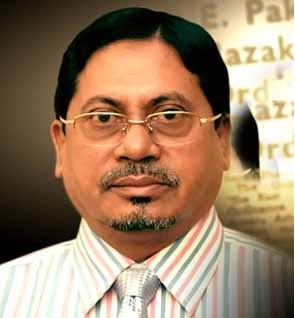Bangladeshi Islamist loses final appeal against death sentence
DHAKA, April 6 (NsNewsWire) — Bangladesh’s highest court has rejected a final appeal by an Islamist leader to overturn his death sentence for atrocities committed during the 1971 independence war, clearing the last legal hurdle to his execution.
The review petition is “dismissed”, Chief Justice S.K. Sinha ruled at the Supreme Court, upholding Mohammad Kamaruzzaman’s original death sentence.
The Jamaat-e-Islami party leader was sentenced to hang in May 2013 by a domestic war crimes court for torture, abduction and murder including a mass killing at a site which has become known as the “Village of Widows”.
An appeal court in November last year upheld the verdict, raising the prospect of his becoming the second Islamist to be hanged for war crimes. Another Jamaat leader, Abdul Quader Molla, was executed in December 2013.
But lawyers for Kamaruzzaman, who is the third most senior member of the Jamaat, made a last legal appeal arguing that there were “serious discrepancies” in the testimonies of prosecution witnesses at his trial.
Secular activists who attended the brief court session were delighted.
“We’re happy. He is a notorious war criminal. We made several attempts during the 1971 war to capture him. But finally he is caught by the court,” Anwar Hossain, who fought in the independence war, told AFP.
“We hope he’ll be executed (in) the quickest time possible,” he added.
The 62-year-old’s only chance of now avoiding the gallows will be if he is granted clemency by the country’s president.
“He can now seek clemency from the president but it is up to him whether he wants to seek mercy or not,” his lawyer Shishir Monir told AFP.
Advertisement
Attorney General Mahbubey Alam told AFP that prison authorities would now ask Kamaruzzaman whether he would seek clemency from the president.
“If he refuses, he could be hanged any moment,” he said.
Molla was executed just hours after his review petition was rejected by the Supreme Court.
The upholding of Kamaruzzaman’s execution order could worsen the ongoing unrest in the country, which has been hit by deadly protests over the opposition’s bid to topple the government of Prime Minister Sheikh Hasina.
Bangladesh suffered its deadliest chapter of political violence in 2013 after the war crimes court handed down a series of death sentences to Jamaat leaders for their role in the 1971 conflict, which saw the then east Pakistan secede from the regime in Islamabad.
Opposition parties say the war crimes trials are politically-motivated and aimed at settling scores, while rights groups say the trials have fallen short of international standards.
Hasina’s secular government maintains they are needed to heal the wounds of the conflict, which it says left three million people dead. Independent experts put the death toll much lower.
